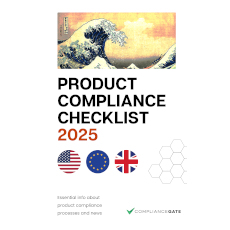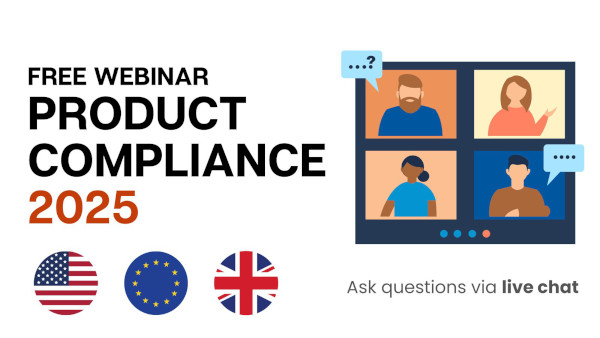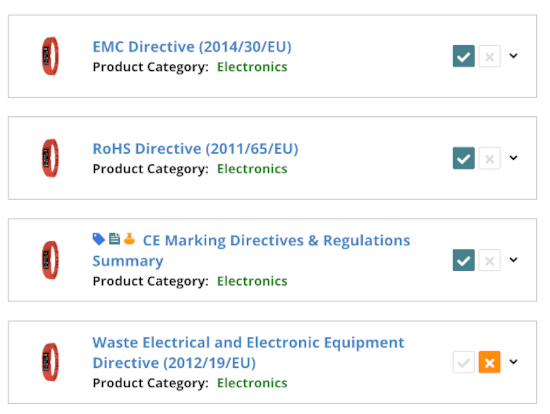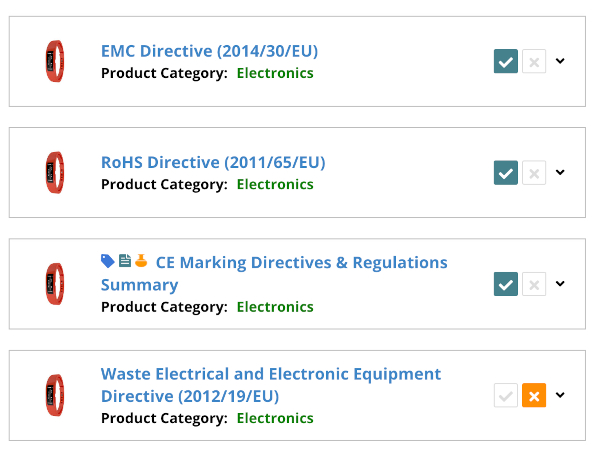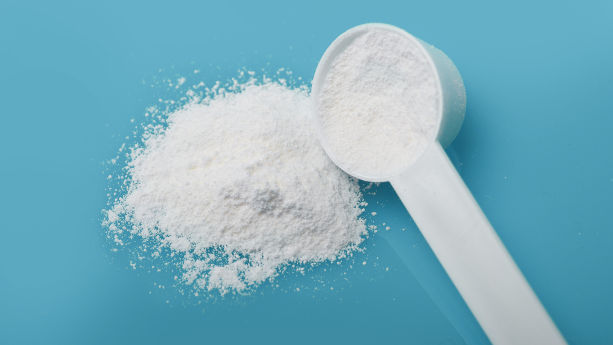
Planning to import or manufacture supplements in the United States? This guide serves as an introduction to supplement compliance requirements in the US, including FDA regulations, PPPA, GMP, lab testing, labeling, and much more.
Mentioned Products
- Vitamins tablets
- Fish oil capsules
- Iron pills
- Calcium pills
Content Overview

FREE CONSULTATION CALL (US, EU & UK)
- Request a free 30-minute call with Ivan Malloci to learn how we can help you with:
- Find product requirements
- Certification and labeling
- Lab testing
What substances are regulated as supplements?
The FDA defines supplements as products taken by mouth that contain ingredients intended to “supplement” the diet. A supplement could be a concentrate, metabolite, extract, or a combination of these substances.
Here some examples of supplements:
- Vitamins
- Minerals
- Botanical or herbal products
- Amino acids
- Enzymes
Also, supplements can be produced in many forms such as:
- Tables
- Capsules
- Powders
- Energy bars
- Liquids
Note that supplements are not supposed to treat, diagnose, prevent or cure diseases, and you should not make such claims for any dietary supplements. The FDA covers both finished supplement products and supplement ingredients. You can learn more about supplement ingredients on the FDA’s website.
Food, Drug, and Cosmetic Act
The Food, Drug, and Cosmetic Act, which is enacted by the FDA, aims at protecting public health by ensuring the safety of food, drugs, and cosmetic products, including supplements. In this section, we explain the New Dietary Ingredients Notification Process and Ingredient Advisory List requirements.
New Dietary Ingredients (NDI) Notification Process
The NDI notification process applies to supplements that contain “new” dietary ingredients, which means ingredients that were not marketed before October 15, 1994.
The FDA’s website claims that there is no official list of those ingredients. Therefore, you are responsible for assessing your ingredients. For example, you can research whether your dietary ingredients were marketed before October 15, 1994, or are classified as new.
In order to complete the NDI notification process, you should submit the following information via the CFSAN portal:
- Company name and postal address
- Name of the new dietary ingredients
- Level of new dietary ingredients in the product
- Supporting evidence of safety (e.g test reports or history of use)
- Responsible person contact information
Once the FDA receives your new dietary ingredients notification, the information becomes available in the FDA’s Division of Dockets Management. You need to notify you new dietary ingredients at least 75 days before marketing your product.
Dietary Supplement Ingredient Advisory List
The Dietary Supplement Ingredient Advisory List serves as a warning list of possible harmful ingredients used in dietary supplements. The FDA doesn’t deem listed ingredients as unsafe, instead, it’s still evaluating them. Here we list some examples of ingredients included in the list:
- Hordenine
- Andarine
- Octopamine
- Sulbutiamine
The FDA suggests that retailers, manufacturers, and other businesses should avoid distributing dietary supplements that include ingredients that are mentioned in the advisory list. It also suggests consumers do not buy products that contain such ingredients.
FDA Labeling Requirements
The FDA provides a Dietary Supplement Labeling Guide that requires five statements on the containers (e.g bottles) and package (e.g boxes) of dietary supplements:
a. The statement of identity (e.g supplement name)
b. The net quantity of contents statement (amount of the dietary supplement)
c. The nutrition statement (amount of calories and fat)
d. The ingredient statement (e.g oil, water, and cod liver oil)
e. The name and place of business of the importers or manufacturer (traceability information)
The FDA requires that you use bold type and reasonable font size for identity statements. The letters should be at least one-sixteenth inch in height based on the lower case letter “o”, and the text height should not exceed three times the width.
Ingredients and Net Content
The FDA requires importers and manufacturers to inform consumers about the supplement content. The label should contain the following information, for each ingredient:
- Ingredient name
- Weight
- % of the daily value
Here is an example of net content information for three ingredients:
- Vitamin C – 60 mg, 0.00013 pounds, 100% daily value
- Biotin – 30 mcg, 0.00001 oz, 10% daily value
- Folate – 400 mcg, 0.00014 oz, 10% daily value
You should list the ingredients in descending order of predominance by weight. The ingredient that weighs the most should be placed first. Further, you should specify the content in both metrics in the US Customary System.
Statement of Identity and traceability Information
The FDA requires importers and manufacturers to disclose relevant traceability information on the label, which includes:
- Dietary supplement name, that is the statement of identity
- Batch number
- Manufacturer name and postal address
- Contact person and phone number
- Date of manufacture
- Expiration date
Warnings
The FDA requires a warning label if the supplement might cause any potential hazard. Here is an example of a warning text:
“WARNING: Accidental overdose of iron-containing products is a leading cause of fatal poisoning in children under 6. Keep this product out of reach of children. In case of accidental overdose, call a doctor or poison control center immediately.“
Source: Dietary Supplement Labeling Guide: Chapter VIII. Other Labeling Information
FDA Current Good Manufacturing Practices (CGMPs) Requirements
The FDA CGMPs set out requirements for facility sanitation, sanitary control, risk management, and process control during supplements’ production.
Written procedures requirements
The CGMPs requires to establish and submit a written procedure for the followings:
- Requirements for personnel and equipment
- Pest control
- Manufacturing operations
- Packaging and labeling operations
- Procedure for returned dietary supplements
- Procedure for product complaints
You can visit the FDA official website for more details about written procedure requirements.
FDA registration
Under the CGMPs, importers and manufacturers should register their dietary supplements and ingredients with the FDA before placing the product in the US market. In addition, foreign facilities should designate an agent with a physical operation address in the US to carry on the registration procedure on their behalf.
Registrants should use the FDA 3537 form (paper form) or the FDA Industry Systems (online portal) to register or renew their application. They need to submit information such as:
- Facility name and postal address
- Parent company name (if applicable)
- United States Agent contact (if applicable)
- Trade name
- Product categories
- Submitter signature
There is no fee for registration or renewal. After registration, the FDA will proceed to the confirmation, verification, and provide a registration number.
Notice being registered does not indicate that your supplement is approved by the FDA. The FDA does not approve any dietary supplement, instead, they conduct monitoring and evaluation when there are public health concerns with the supplement. Such evaluations might lead to recalls and other sanctions.
Poison Prevention Packaging Act (PPPA)
The Poison Prevention Packaging Act (PPPA) aims at protecting children from hazardous chemicals. It requires the use of child-resistant packaging for many products, including supplements that contain an equivalent of 250 mg or more of elemental iron.
Here the main requirements of the PPPA, as set in 16 CFR Part 1700.15:
a. Importers and manufacturers should provide child-resistant packaging
b. Importers and manufacturers should conduct child-resistant tests for the packaging
There are also some iron-supplement exemptions, such as in these cases:
a. The iron is present solely as a colorant
b. The product contains powdered preparations with less than 0.12% by weight of elemental iron
California Proposition 65
California Proposition 65 requires warning labels if the product contains chemicals that can cause cancer, birth defects, or other reproductive harm above the prescribed threshold.
It covers most consumer products including supplements. You should either confirm that the supplement content doesn’t contain restricted substances above the limits or affix a warning label, when necessary.
Here are some examples of restricted substances that might be found on supplements:
- Mercury
- Lead
You can learn more about California Prop 65 restrictions for supplements on this page.
Country of Origin Label
The US Tariff Act requires importers and manufacturers to state the Country of Origin on the product’s label.
The label should specify the manufacturing country. Here are some examples:
- Made in the United States
- Made in China
- Made in Italy
- Made in France
- Made in Vietnam
Lab Testing & Facility Inspections
Third-party lab testing is the only way to ensure your supplements are safe for human consumption – as defined by the FDA and other regulations. Lab testing can also be applied to the packaging.
Keep in mind that market surveillance authorities or other government agencies might require test reports and certification at any time for compliance review.
Lab testing companies can sometimes also help you to verify the supplement content for correct labeling, and provide assistance for the following:
- On-site product inspections
- Sampling
- CGMP audits
- Hygiene audits
- Food safety certification
- Food labeling
- Documentation
Here are some testing companies that provide food safety testings for supplements:
- ALS
- Eurofins
- SGS
- Intertek


